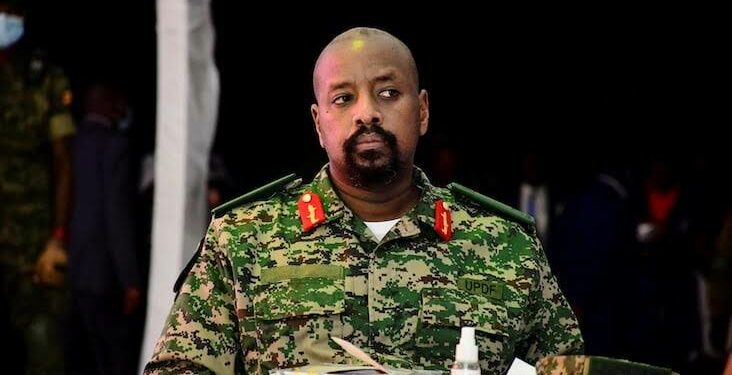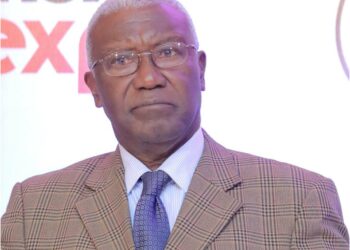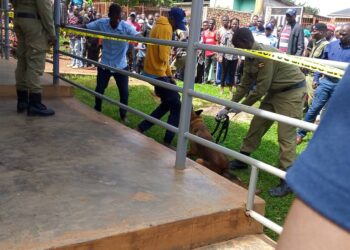General Muhoozi Kainerugaba, son of Uganda’s President Yoweri Museveni, had been positioning himself as a potential candidate for the country’s highest office for the past couple of years, becoming a household name as far as politics is concerned. His message of change, youth empowerment, and a new era for Uganda attracted significant support from various sectors, including youth groups, members of parliament, ministers, and even opposition figures. Muhoozi’s political ambitions were crystallized through the Patriotic League of Uganda (PLU), a pressure group that drew members from both the ruling NRM and opposition parties.
But in a surprising turn of events, Muhoozi recently declared that he would not be running for the presidency in the upcoming 2026 general elections. Instead, he endorsed his father, President Museveni, and reaffirmed his support for the NRM. This move has left many of his followers, especially those who had left their political parties to align with the PLU, in a difficult position. These individuals had hoped that PLU would become an official political party by 2026, providing them with a platform to contest in elections. Now, with Muhoozi stepping down, these supporters face uncertainty about their political futures.
For politicians who denounced their original parties and joined Muhoozi’s PLU, the path ahead is filled with challenges. They had banked on PLU being their vehicle for success in the 2026 elections. With no official political party and Muhoozi’s withdrawal from the race, many of these politicians may find it difficult to rejoin their former parties, as they are likely to face distrust from their previous colleagues. The PLU’s dissolution as a political force could weaken their chances of securing parliamentary or other political seats under NRM or other established parties, leaving them in a precarious position.
Muhoozi’s decision to step aside raises questions about his long term political credibility. While some of his supporters may still believe in his leadership and vision, others could feel betrayed by his sudden change in plans. His years of building momentum and drawing people to his cause may now be at risk, as those who supported him might begin to doubt whether he will ever follow through on his ambitions for the presidency.
However, if Muhoozi chose to contest in future elections, his supporters may still rally behind him, provided he can regain their trust and show that his current decision was part of a broader strategy. A lot will depend on how he manages the political fallout and whether he can present a compelling vision for Uganda’s future in the years to come.
And from the perspective of the NRM, Muhoozi’s decision is a win. By endorsing his father and the NRM, Muhoozi is ensuring that the party remains united and avoids a potentially divisive internal contest that could have weakened the party’s prospects in 2026. Museveni, already a dominant figure in Uganda’s political landscape, gains further consolidation of power by neutralizing any competition from within his own camp.
The NRM now has a clear path forward, with Museveni confirming to continue as the party’s candidate, benefitting from the broad support that Muhoozi had cultivated.Kainerugaba’s influence on the youth and sections of the opposition could strengthen Museveni’s position, as he can count on these voters’ backing due to Muhoozi’s endorsement.
Furthermore, It is worth considering whether Muhoozi’s decision to step down was influenced by opposition pressure, particularly from NUP and its leader, Bobi Wine. NUP has positioned itself as a major challenger to the NRM, and Muhoozi’s entrance into the race would have complicated the political landscape. Bobi Wine and the NUP command significant support, especially among the youth, and could have mounted a strong challenge to both Museveni and Muhoozi.
While Muhoozi’s withdrawal may not be directly due to pressure from Bobi Wine, it’s clear that the growing strength of the opposition plays a role in shaping political decisions in Uganda. By choosing not to contest, Muhoozi may have avoided a potentially bruising and divisive election campaign that could have split the NRM base and benefitted the opposition.
His withdrawal from the 2026 presidential race marks a significant shift in Uganda’s political landscape. For his supporters, especially those who left their parties to join the PLU, the future is uncertain. Muhoozi’s decision has created a situation that may leave some without a political home, while others may hold out hope for his future candidacy. In the short term, the biggest beneficiaries of this decision are President Museveni and the NRM, who can now move forward without internal competition. Whether Muhoozi will run in future elections remains in question, but he will need to work hard to rebuild trust among his supporters if he chooses to do so.
Do you have a story in your community or an opinion to share with us: Email us at editorial@watchdoguganda.com













